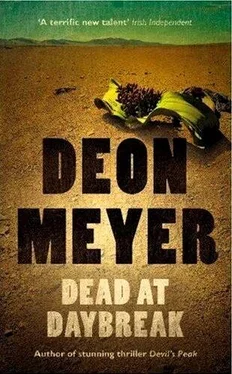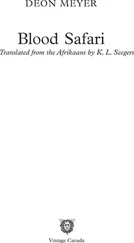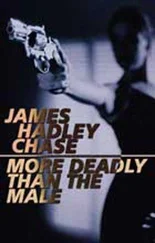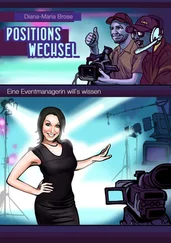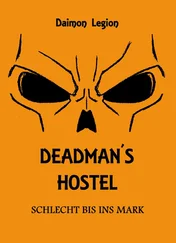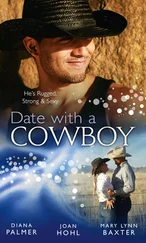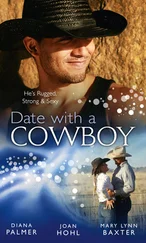Below the photos, behind a desk, sat a man whose face looked like a battlefield but whose body, at the age of fifty-four, was in the best possible physical condition. “To reach the top as a heavyweight, you have to climb the ladder to the top. I was lucky to have been a rung on that ladder for so many successful boxers” were the self-ridiculing words heard in police pubs throughout the country whenever Viljoen’s name came up. It was also the origin of his legendary nickname.
“I know you,” said Rung Viljoen when Van Heerden knocked on the door frame on Saturday morning.
He walked in and extended his hand.
“No, don’t tell me.” He pulled his large hand over his scarred face as if he wanted to wipe off cobwebs.
Van Heerden waited.
“I must just place the face…”
He didn’t want to be remembered.
“Do you box?”
“No, Superintendent.” Involuntarily his hand went to his eye.
“Call me Rung. I give up. Who are you?”
“Van Heerden.”
“Used to be with Murder and Robbery?”
“Yes, Superintendent.”
“Hang on a second, hang on. Silva, that fucker who shot Joubert’s wife. Weren’t we on the task team together?”
“That’s it.”
“Thought you looked familiar. What can I do for you, colleague?”
“I’m working with a legal firm now.” Manipulating the truth, trying to avoid the PI remarks. “We’re investigating a case for a client that goes back a number of years. Early eighties. Drugs could be involved. Rumor is, if you want to know something about drugs, you ask Rung Viljoen.”
“Ha!” said Viljoen. “Flattery. Always works. Sit down.”
Van Heerden pulled out the old civil service chair and sat down on the worn leather seat. “We suspect that a big transaction took place in ’eighty-two or -three in which American dollars were involved, Superintendent.”
“Rung.”
He nodded. “I’m afraid that’s about the extent of our information.”
Viljoen’s frown carved deep scar tracks next to his eyes. “What do you want from me?”
“Speculation. For argument’s sake, let’s say there was a big drug deal in 1982. Let’s say dollars were involved. Who, typically, would have been the players at that time? What would they have smuggled? If I dig around, where do I start digging?”
“Shit,” said Rung Viljoen, and dragged the broken-knuckled hand over his face again. “Nineteen eighty-two?”
“Somewhere about then.”
“American dollars?”
“Yes.”
“The dollars don’t mean a thing. It’s the currency of the trade, any place on earth. Tell me, are there Chinese involved? Taiwanese?”
“I don’t know.”
“But it’s possible?”
“The deceased in the case is a forty-two-year-old white man from Durbanville, an Afrikaner by the name of Johannes Jacobus Smit. It’s probably not his real name. The age is more or less correct.”
“The deceased? How did he become deceased?”
“One shot in the back of the head from an American M16 rifle.”
“When?”
“Thirtieth of September last year.”
“Mmmmm.”
Van Heerden waited.
“M16?”
“Yes.”
“Don’t know it.”
“Nougat O’Grady says it’s an American army assault rifle.”
“The Chinese prefer smaller stuff. But one never knows.”
“Where do the Chinese come into it?”
“In 1980 there were a few routes. Number one came from Thailand. Heroin, mainly, if we’re talking big money in dollars. Through India and Pakistan, Afghanistan occasionally, and then the Middle East, four, five different agents, to Europe. Number two was Central America, which had just started doing their thing, through the Gulf of Mexico to Texas and Florida. But if you’re talking about us, it was probably the other route. Possibly heroin from the Golden Triangle to Taiwan and the Far East. In those years the Taiwanese triads slowly but surely became the big suppliers in South Africa. But we’ve never been a large market. Too few people with enough money for drugs. If you ask me, it could’ve been an export transaction. Marijuana, perhaps. Or Mandrax, imported. Makes no difference what it was – the amounts couldn’t have been much larger than a million dollars.”
“Why?”
“We’re a very small fish in a very big ocean, Van Heerden. We’re at the ass end of the world, the dope desert. In comparison with the trade in the USA and Europe, we’re not even a wart on the ugly face of international drug sales. In the eighties we were even smaller.”
“This guy had a walk-in safe built – too small for missiles and too big for a few hundred thousand dollars in notes. He had to have something he wanted to keep in it…”
“In Durbanville?”
“In Durbanville.”
“Fooock.” Rung plaited his fingers behind his head, and his biceps swelled impressively. “What about diamonds?”
“I thought about that. He imported antique furniture from Namibia, so it would fit, but stones are too small.”
“But valuable. Lots of dollars.”
“Could be.”
“Durbanville feels more like stones to me. Drugs aren’t a Boer thing. But show a white Afrikaner a diamond…It’s in our genes.”
It was a good argument. He couldn’t deny it. But he didn’t want to change gears: the lack of sleep lay between him and new thought processes. He wanted to hang on to drugs, the packets of white powder that, in his imagination, lay on the shelves in the safe, neatly stacked, filling Jan Smit’s hiding place so tidily.
“Just presume for a moment that it was drugs. Who would’ve been the local players in those years?”
“Hell, Van Heerden…” Hand over the face, an odd, unconscious mannerism. “Sam Ling. The Fu brothers. Silva. It’s a long time ago.”
“Where can I find Sam Ling?”
Viljoen laughed, a phlegmy, rattling sound. “The life expectancy of those guys doesn’t exactly have insurance agents rushing for their forms. Ling, they say, was fed to the fish in the harbor. The Fu brothers were shot in a gang war in ’eighty-seven. And you know what happened to Silva. You’re looking for shadows. Everything has changed. It’s almost twenty years.”
“And if it’s stones? Who do I speak to?”
Viljoen smiled slowly. “You could try the detectives at Gold and Diamonds. But if I were you I’d pay the Horse a visit – if you can get past the gate, of course.”
“The Horse?”
“Don’t tell me you’ve never heard of Ronald van der Merwe?”
“I’ve been…somewhat out of circulation for the past few years.”
“Must have been, because there wasn’t a policeman south of the Orange River who didn’t gossip about Ronnie. And if you quote me, I’ll say you lied like a trouper.”
Van Heerden gave a quick nod.
Viljoen drew his palm over his face, slowly, from forehead to jaw. Van Heerden wondered whether he hoped to heal the damaged tissue. “Ronnie. Colorful. Big guy. Was at the Diamonds branch for years. Calls everyone ‘Horse.’ Always greets everyone with a ‘Hi, old horse.’ Likes big American sports cars. Drove a Trans Am while he was still a sergeant, and everyone wondered how he could afford it and there was always gossip, but his arrest record was good. Very good. Captain, later. And about two years ago Ronnie resigned and the news was that he’d bought a house at Sunset Beach, a castle with three garages and a high wall and electronic gates that open by remote control. And now he doesn’t know any policemen.”
Van Heerden said nothing.
“They said his ship had come in. All the way from Walvis Bay, if you know what I mean.”
Lonely?
Beautiful Natasha wants to listen
Call her now at
386-555-555
He drove from the city on the N1, then north on the N7, the sun breaking through cloud, the green of the wet Cape glowing in the bright light.
Читать дальше
